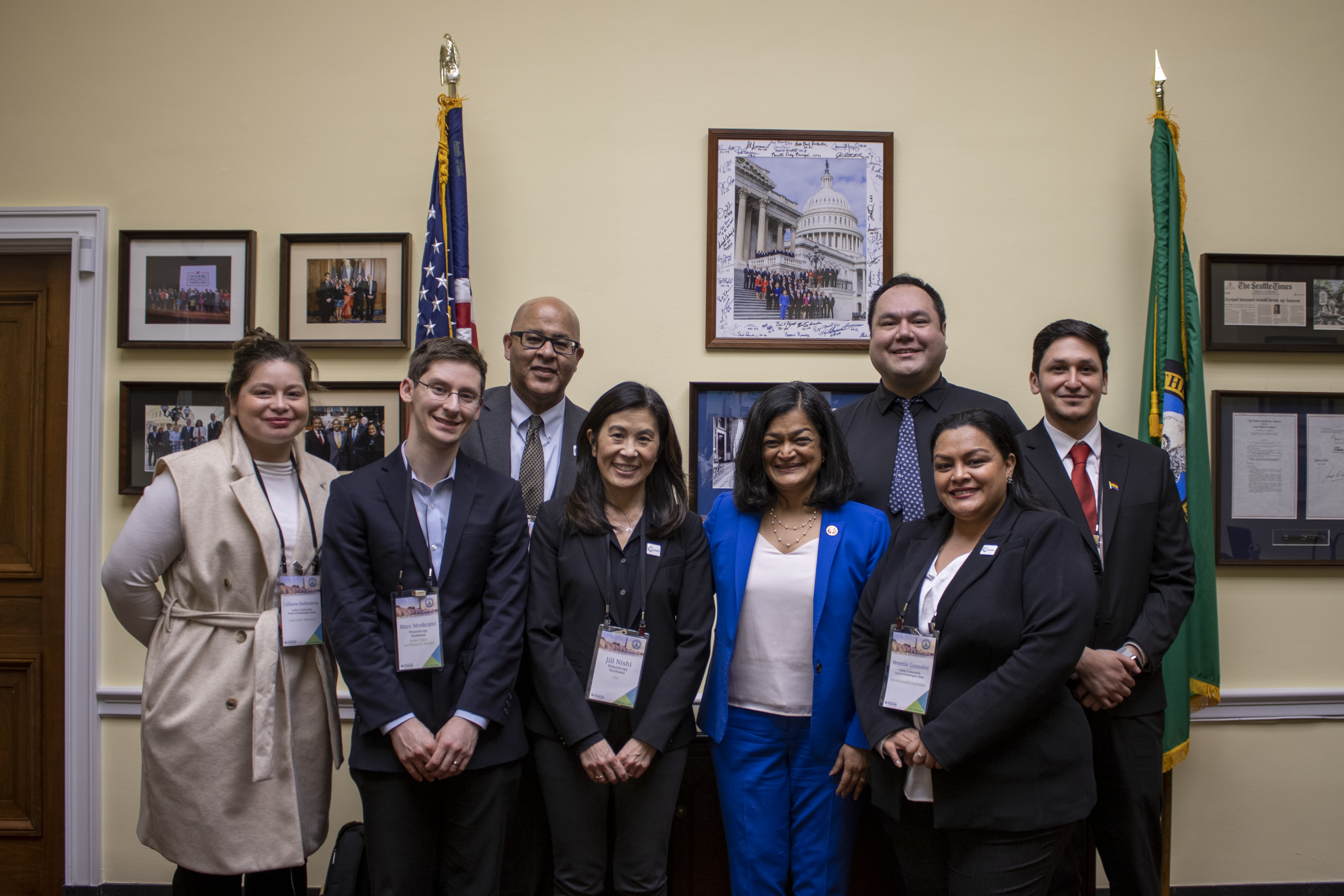We use our collective voice to take a stand on issues that matter to our communities.
Philanthropy Northwest uses our collective power to promote structural shifts through thought partnership, sector organizing and advocacy to inform policies that increase the availability of philanthropic and public resources to underinvested communities, and to promote democratic institutions that are inclusive and reflective of the communities they represent.
Why do we engage in public advocacy?
Governments play a huge role in the allocation of resources and power to the communities that philanthropy serves. The charitable sectoris far more effective when we have democratic institutions that are responsive, transparent and that authentically represent the breadth of our local communities – and achieving this goal requires robust engagement by all.
Philanthropy Northwest advocates for a strong charitable sector in service of our region’s communities, and we support our members to become effective advocates themselves.
Our Public Policy Priorities
Philanthropy Northwest’s advocacy is focused our public policy goals:
- Promote a more equitable and racially just region; and
- Increasing the availability of philanthropic and public resources to underinvested communities.
In service of these goals, Philanthropy Northwest advocates on issues that are vitally important to our members. Examples include:
The Census
We support a robust and accurate census count and encourage philanthropy to be involved in preparing Northwest communities for the census. In 2020, we actively called upon state and federal governments to fully fund the 2020 Census. We also led a Washington pooled fund of over 30 funders to support census education and outreach, documented in our 2020 Washington Census Equity Fund Evaluation Report. Learn more about how funders can prepare for the 2030 Census by following the Funder Census Initiative’s A Blueprint for Philanthropic Census Engagement.
Charitable Giving
We support a universal charitable incentive that enhances giving more equitably and efficiently across a wider, diverse base of donors across the income spectrum, to provide more charitable resources to communities. Read our one-pager on a universal charitable giving incentive.
Donor-Advised Funds
We favor regulation to increase transparency and payout of donor-advised funds (DAFs), and we support increased education and research to help us deepen understanding of the complexities and considerations to inform our stance on specific proposals. Read our one-pager on donor-advised funds and our DAF FAQ that addresses common questions about DAF regulation and trends.
Missing and Murdered Indigenous People
We support policies that address the crisis of missing and murdered Indigenous people, especially women, girls and Two-Spirit individuals, and call upon philanthropy and all levels of government to prioritize this issue. Read the report on this issue from Urban Indian Health Institute.
With sector partners, Philanthropy Northwest has adopted other policy positions as well, including opposing family separation at the border and supporting the prohibition against partisan activity by 501(c)(3) organizations.
Public Policy Committee Members
|
Mike Halligan, Dennis & Phyllis Washington Foundation (Committee Chair) |
Mauri Ingram, Whatcom Community Foundation |
|
Kevin Bailey, Idaho Nonprofit Center |
Omni, Pride Foundation |
|
Christine Calpin, Casey Family Programs |
Brian Tanner, Potlatch Fund |
|
Shona Carter, Black Future Co-Op Fund |
Aleesha Towns-Bain, Bristol Bay Native Corporation Education Foundation |
|
Kris Hermanns, Seattle Foundation |
